Major blow to the BA Amex as FCA imposes 0.3% interchange fee cap
Links on Head for Points may support the site by paying a commission. See here for all partner links.
The Payment Systems Regulator, an arm of the Financial Conduct Authority, yesterday issued its final view on whether the British Airways American Express cards, amongst others, are already caught by the new 0.3% cap on credit card interchange fees. The answer, it seems, is yes.
In simple terms, the original plan was this:
So-called ‘four party card schemes’, where an intermediary – ie Visa or MasterCard – sits between the retailer and the card issuer were to face a 0.3% cap on interchange fees
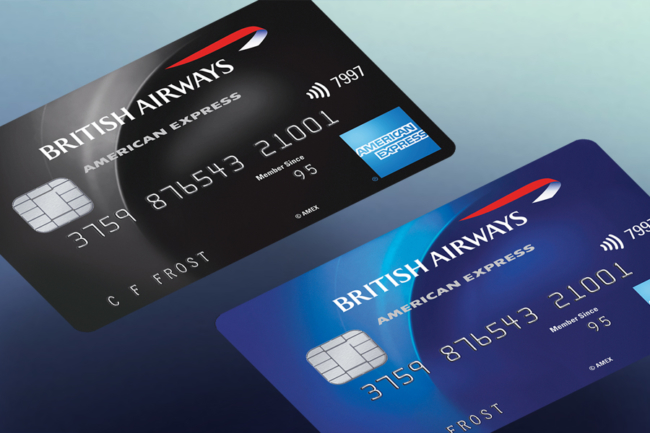
So-called ‘three party card schemes’, where there is no intermediary – ie American Express – would be permanently exempt, except …..
So-called ‘three party card schemes’ where the card is co-branded (eg the BA Amex, SPG Amex) or issued by another party under licence (eg the Lloyds Avios Amex) would be exempt until late 2018
There was a fly in the ointment. In the third scenario above, the transitional exemption only applied if American Express could show that it had a UK market share of under 3%. It has failed to do so.
As this guidance issued yesterday confirms, American Express must set an interchange fee on its co-branded and licensed cards of no more than 0.3% until March 2017. Should its market share drop below 3%, the position will be reassessed from March 2017 – although the exemption will end, regardless, in December 2018.
The bottom line is that American Express will see a substantial reduction in the income it receives from retailers when you pay with a co-branded or licensed Amex card.
What will change?
In the short term, nothing. American Express has a contract to operate the British Airways card and will presumably continue to do so under the agreed terms unless there are suitable break clauses in place. The contract was only renewed in the last 18 months or so.
It is noticeable that the credit card reward schemes to cut their benefits so far are generally those NOT operating under a third party licence. I am thinking of HSBC Premier, Tesco Clubcard Mastercard and NatWest with Your Points. None of these schemes involves a third-party branding partner.
The only co-branded cards I can think off which have cut their benefits are the House of Fraser card, the Debenhams card (both issued by the same group) and Capital One Vauxhall card, which was closed entirely.
Once these co-brand contracts come up for renegotiation, of course, you can be fairly sure that there will be some major changes in the benefits offered. These are likely to involve lower rewards for your day-to-day spending but improved benefits such as status perks, 241 vouchers etc.
One thing remains clear. The big travel brands want to keep their logos in your wallet and the card issuers want to keep the (generally affluent) group of people who hold airline and hotel credit cards. Exactly how this will be done will unfold over the next couple of years.
The end result may not be entirely bad. In the USA, for example, IHG Rewards Club has a $49 annual fee credit card which gives you a free night every year – with no need to spend anything! That would be a hugely attractive product if it was launched here even if the earning rate on the card was lower than we see now.
The other outcome is that American Express is likely to put huge marketing efforts behind Preferred Rewards Gold and Platinum. These cards remain permanently exempt from the interchange fee caps and will be considerably more lucrative for the company going forward – and Amex will be heavily motivated to create a benefits package which attracts and retains customers.
Want to earn more points from credit cards? – April 2024 update
If you are looking to apply for a new credit card, here are our top recommendations based on the current sign-up bonuses.
In February 2022, Barclaycard launched two exciting new Barclaycard Avios Mastercard cards with a bonus of up to 25,000 Avios. You can apply here.
You qualify for the bonus on these cards even if you have a British Airways American Express card:

Barclaycard Avios Plus Mastercard
Get 25,000 Avios for signing up and an upgrade voucher at £10,000 Read our full review

Barclaycard Avios Mastercard
5,000 Avios for signing up and an upgrade voucher at £20,000 Read our full review
You can see our full directory of all UK cards which earn airline or hotel points here. Here are the best of the other deals currently available.

British Airways American Express Premium Plus
25,000 Avios and the famous annual 2-4-1 voucher Read our full review

American Express Preferred Rewards Gold
Your best beginner’s card – 20,000 points, FREE for a year & four airport lounge passes Read our full review

The Platinum Card from American Express
40,000 bonus points and a huge range of valuable benefits – for a fee Read our full review
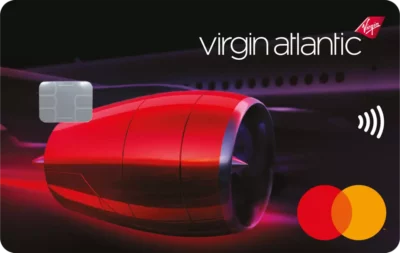
Virgin Atlantic Reward+ Mastercard
18,000 bonus points and 1.5 points for every £1 you spend Read our full review
Earning miles and points from small business cards
If you are a sole trader or run a small company, you may also want to check out these offers:
SPECIAL OFFER: Until 12th May 2024, the Capital on Tap Business Rewards Visa card is offering a bonus of 30,000 points, convertible into 30,000 Avios. You must have a Limited Company to apply. Click here to learn more and click here to apply.
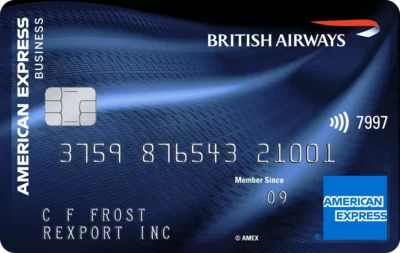
British Airways Accelerating Business American Express
30,000 Avios sign-up bonus – plus annual bonuses of up to 30,000 Avios Read our full review

American Express Business Platinum
40,000 points sign-up bonus and an annual £200 Amex Travel credit Read our full review

American Express Business Gold
20,000 points sign-up bonus and FREE for a year Read our full review

Capital on Tap Business Rewards Visa
Huge 30,000 points bonus until 12th May 2024 Read our full review
For a non-American Express option, we also recommend the Barclaycard Select Cashback card for sole traders and small businesses. It is FREE and you receive 1% cashback on your spending.
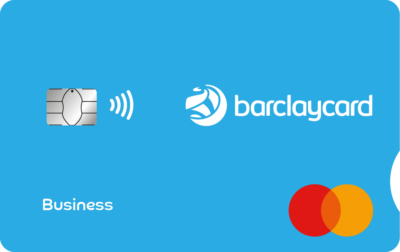
Barclaycard Select Cashback Business Credit Card
1% cashback uncapped* on all your business spending (T&C apply) Read our full review



 Rob
Rob 


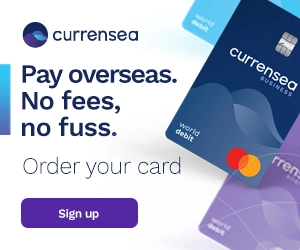

Comments (98)